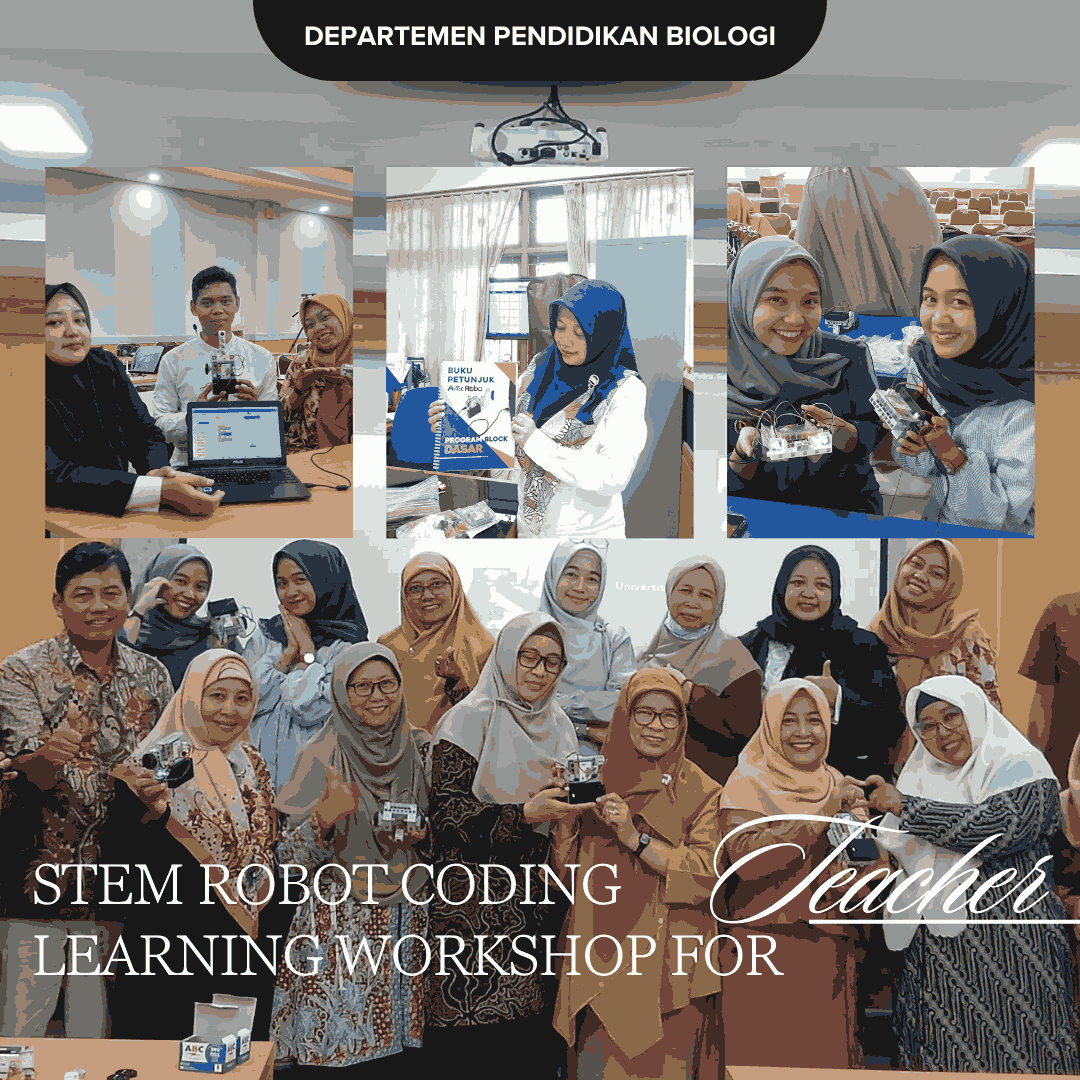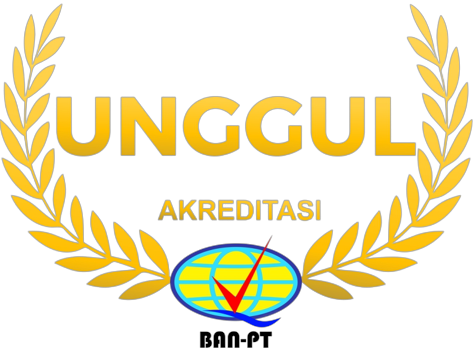 Bahasa Indonesia
Bahasa Indonesia English
English
You are here
STEM Robot Coding Learning Workshop for Teacher

Department of Biology Education, FMIPA UNY, Holds a STEM Robot Coding Learning Workshop to Improve Teacher Competence in the Digital Era.
Friday, October 25, 2024, was an enthusiastic day for 40 teachers from various education levels who participated in the STEM Robot Coding Learning Workshop in Meeting Room 3 of FMIPA UNY. The Department of Biology Education organized this activity to improve teachers' competence in integrating science, technology, engineering, and mathematics (STEM) in the learning process.
With high enthusiasm, the participants were invited to explore the world of robot programming. The workshop began with a presentation by the first speaker, Dr. Arif Hidayat the Chairman of the Indonesian STEM Association, who explained the basics of the STEM curriculum. Then, Ms. Jane Soh from ARTech Singapore as the main speaker, revealed the importance of mastering technology for teachers in the digital era. He emphasized, "By mastering robot coding, teachers can create interactive and fun learning experiences for students."
Not only theory, participants immediately jumped into practice using ARTec kits, designing programs to move robots, detect objects, and solve simple challenges guided by Mr. Taewook Im from ARTec Japan. In a collaborative spirit, he explained the basic concepts of programming and provided practical challenges, encouraging participants to optimize the robot's functionality. "Every program you create is a step towards more interactive learning," he said, inspiring participants to explore their creativity.
"This workshop is very useful. I gained a lot of new knowledge that I can apply at school," said Atik, a teacher from SMAN 1 Nganglik Sleman, who was full of enthusiasm during the practical session.
From the lecturer's point of view, Nila, M.Si, stated, "This activity not only improves technical skills, but also strengthens the spirit of collaboration between teachers and lecturers. We hope that this can be a model for future workshops that are more integrated." Meanwhile, Dr. Mualimin added, "Initiatives like this are an important step towards a better transformation of education, where technology and creativity support each other in the teaching and learning process."
The postgraduate students who attended also felt the positive impact of this workshop. Saprudin said, "Seeing teachers who are passionate about learning makes me confident that technology integration in schools is not difficult." Dede also emphasized the importance of innovation, "This activity shows that technology can be a bridge to create a more engaging and relevant learning experience."
The Head of the Department of Biology Education, Dr. Anna Rakhmawati., M.Si, hopes that this activity can be the first step to improving the quality of learning in schools. The same hope was conveyed by Rahmania Pamungkas, M.Pd, a facilitator from the Biology Education Study Program. He explained, "This workshop is part of a commitment to increase collaboration between universities and schools to support the development of teacher competencies in the use of technology for learning."
In addition to learning, this workshop is also a gathering place for teachers, facilitating the exchange of experience and knowledge. They hope that similar activities can be held regularly. For lecturers, this is an opportunity to develop research and community service programs, strengthening the education ecosystem in Indonesia.
In the spirit of collaboration, this workshop not only provides new knowledge but also builds a strong learning community, which is ready to face the challenges of education in the digital era. Hopes for a more innovative and inclusive future of education are strengthening, making every step taken at this event a stepping stone towards a bigger vision.
Sistem Informasi
Kontak Kami
Program Studi Pendidikan Biologi
Kantor Jurusan Pendidikan Biologi
Gedung Dekanat FMIPA lt III
FMIPA Universitas Negeri Yogyakarta
Kampus Karangmalang Yogyakarta 55281
email : pend_biologi@uny.ac.id
Copyright © 2026,

